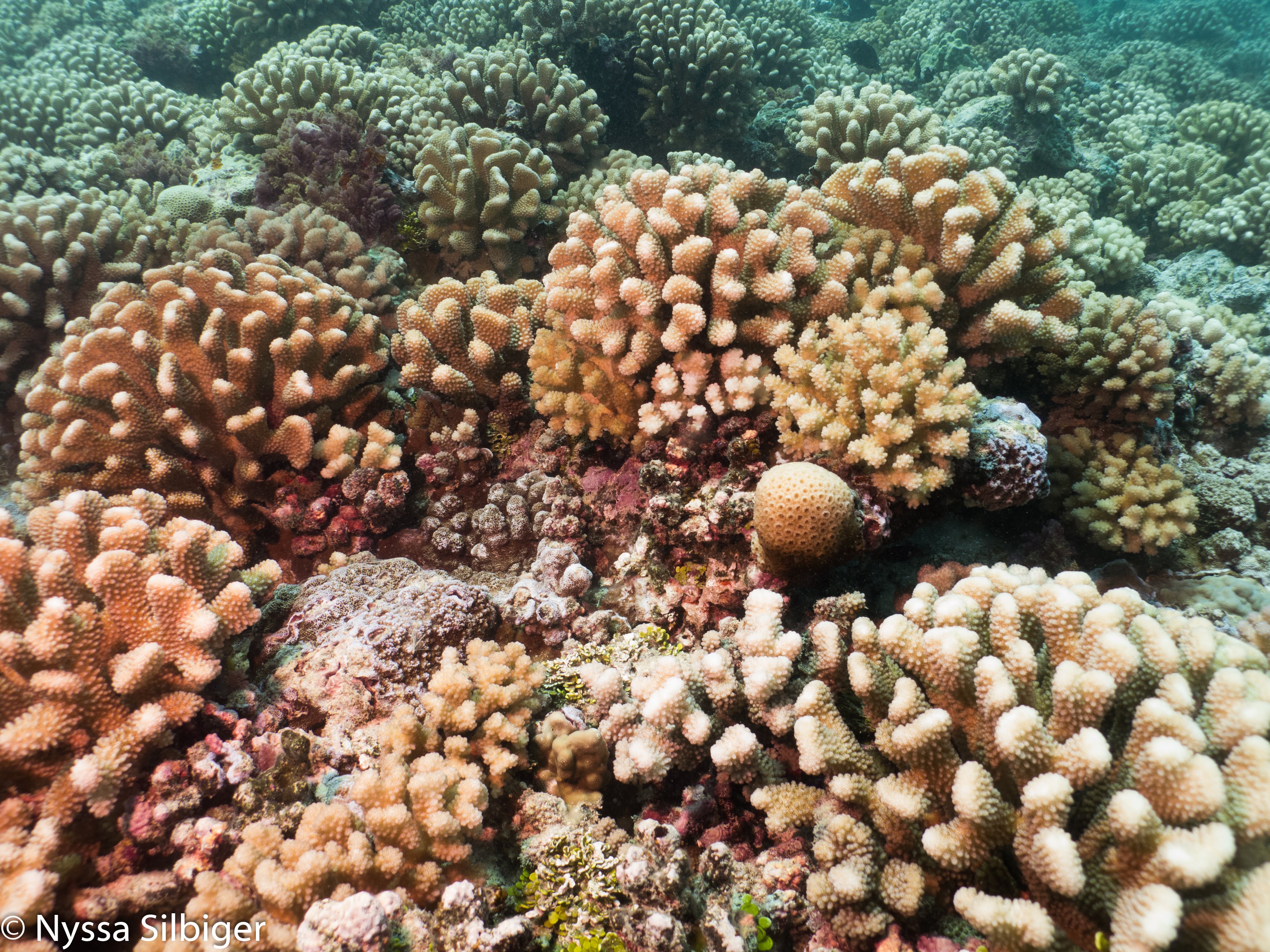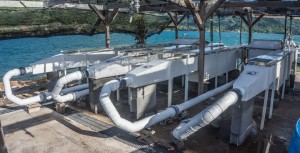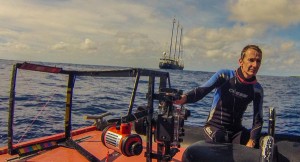
Photo courtesy of Nyssa Silbiger
A years-long study focused on the climate effects on coral reefs by California State University, Northridge marine biologists Peter Edmunds and Robert Carpenter reveals concerns for their future survival.
The new study, published in Limnology and Oceanography and led by Edmunds and Carpenter – who have more than 30 years of experience researching coral reefs – shows the long-term consequences of ocean acidification for coral reefs in Mo’orea, French Polynesia. Combined with rising seawater temperatures, the coral reef structures may not be able to grow and reproduce as climate change continues.

Ocean acidification is a reduction in the ocean’s pH over an extended time — with its root cause being the uptake of CO2 from the atmosphere, which is increasing through the burning of fossil fuels, cement production, and numerous other human-related practices. Some ecosystem components directly impacted are organisms that utilize carbonate ions to build their shells and skeletons — such as coral, oysters, sea urchins, and plankton — putting many organisms at risk from ocean acidification.
Commercial and recreational managed fisheries depend on coral reef habitats for many important fishes, shellfish and other invertebrates that are targeted for fishing. Coral reef fisheries are worth $5.7 billion globally, according to the Reef Resilience Network.
Edmunds warned that the research, which began in 2015 and was supported with grants from the US National Science Foundation (NSF), suggests that if ocean acidification trends continue the way they have over the last 20 years, the long-term survival of coral reefs is in jeopardy.
“The oceans are getting a little bit more acidic and because they’re getting a little bit more acidic, corals and coral reefs are growing more slowly, and that slower growth is unlikely to be changed by adaptation or acclimatization,” Edmunds said. “The reefs in the future are going to get more and more delicate and we’re not going to solve that problem unless we start to do something about the high concentration of carbon dioxide in the atmosphere.”
Coral reefs play a critical role in the economy and human welfare, including food security and shoreline protection to coastal communities. However, for coral reefs to thrive, the coral must be able to grow and reproduce faster than they are being killed.
After more than three years of study, Edmunds said his research team found that coral reefs “did not show any ability to reduce their susceptibility to these more acid conditions.”
“This is something we would not have found from short experiments conducted over weeks or months,” Edmunds said. ‘So, pretty quickly, we knew that ocean acidification is going to be bad news for coral reefs, because even early experiments showed they were not able to do well at more acidic conditions, and our latest experiments show that corals and coral reefs do not change their response over a year.”

However, there is still hope that the long-term survival of coral reefs can be remedied by making investments to curtail the effects of climate change, Edmunds said.
“I remain optimistic, but I think we’re not going to solve this problem unless we start to do something about carbon dioxide in the atmosphere,” Edmunds said. “Or else, in 50 years’ time, we will barely recognize tropical corals reefs. They’ll still be corals and fishes down there but they’re just going to be very different to those that we see now.”
The research was conducted with marine biology professor Steve Doo of the University of Hawaiʻi at Hilo (formerly a postdoctoral researcher at CSUN) and within the Moorea Coral Reef Long Term Ecological Research program, which is the flagship coral reef project of NSF, with the project shared between CSUN and UC Santa Barbara.



Comments are closed.